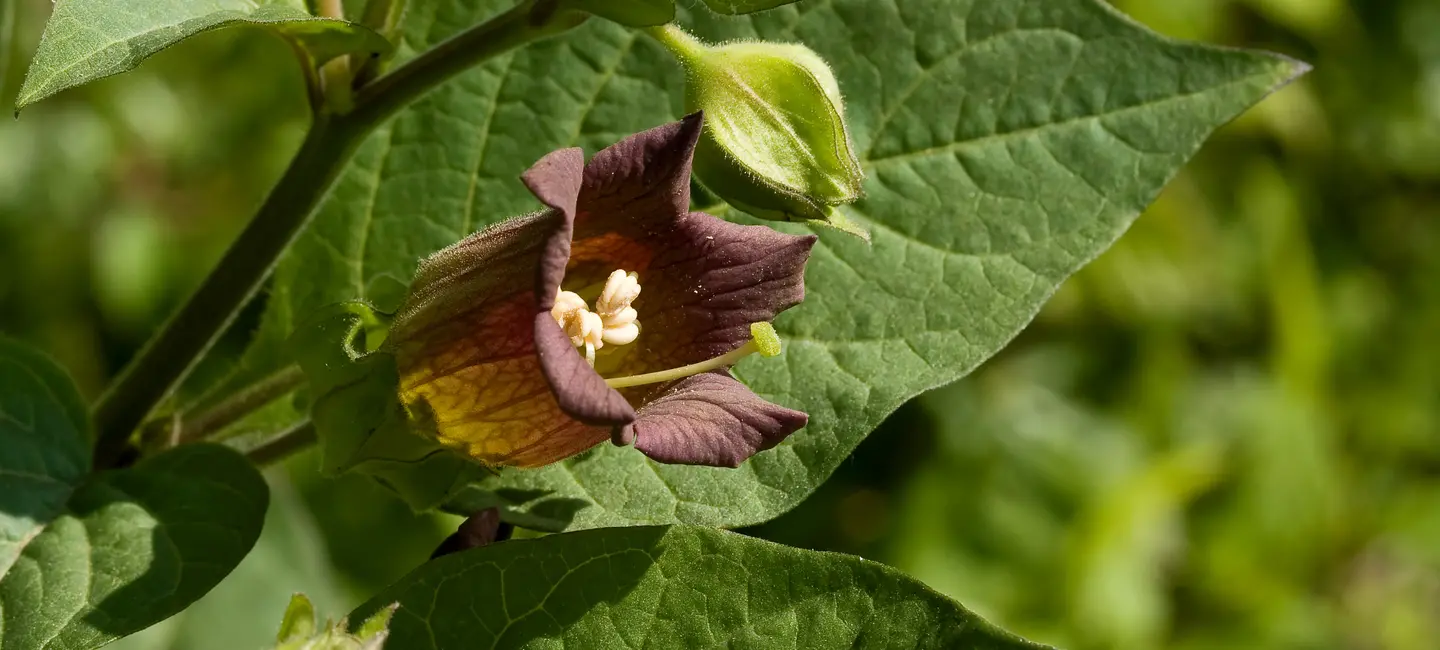
Belladonna (Atropa belladonna) is a plant that grows from Western Europe to the Himalayas. It’s also grown in the US. All parts of the plant are poisonous.
Belladonna has chemicals that can alter the function of the body's nervous system and cause changes to saliva, sweat, pupil size, urination, digestive functions, and others. Belladonna can also cause increased heart rate and blood pressure.
Despite known safety concerns, people use belladonna for asthma, the common cold, hemorrhoids, Parkinson disease, and many other conditions, but there is no good scientific evidence to support these uses.
Since 2010, the FDA has issued several warnings about homeopathic teething tablets and gels for infants that contain belladonna. Serious side effects including seizures, breathing problems, and agitation have been reported in infants taking these products, and some have died.
Is It Effective?
There is interest in using belladonna for a number of purposes, but there isn't enough reliable information to say whether it might be helpful.
Is it Safe?
When taken by mouth: Belladonna is likely unsafe. It contains chemicals that can be poisonous even at low doses. Serious side effects might include blurred vision, fever, fast heartbeat, inability to urinate or sweat, hallucinations, spasms, mental problems, convulsions, coma, and others.
When applied to the skin: Belladonna is possibly unsafe. There isn't enough reliable information available to know if the poisonous chemicals in belladonna can be absorbed through the skin.
When given as a suppository (rectally): Belladonna is possibly unsafe. There isn't enough reliable information available to know if the poisonous chemicals in belladonna can be absorbed from the rectum.
Special Precautions & Warnings:
Pregnancy: Belladonna is likely unsafe when taken by mouth during pregnancy. It contains potentially toxic chemicals and has been linked to reports of serious side effects.
Breast-feeding: Belladonna is likely unsafe when taken by mouth while breast-feeding. It can reduce milk production and also passes into breast milk.
Children: Belladonna is likely unsafe when taken by mouth. Consuming as few as 2 berries can be fatal in small children. Also, severe side effects and death have occurred in infants treated with homeopathic teething products containing belladonna.
Heart disease: Belladonna might cause rapid heartbeat and might make some heart conditions worse.
Down syndrome: People with Down syndrome might be extra-sensitive to the chemicals in belladonna and their harmful effects.
Gastrointestinal (GI) conditions: Belladonna might slow down the stomach and intestines, which could make some GI conditions worse.
Narrow-angle glaucoma: Belladonna might make narrow-angle glaucoma worse.
Cisapride (Propulsid)
Interaction Rating=Moderate Be cautious with this combination.
Belladonna contains atropine. Atropine can reduce the effects of cisapride. Taking belladonna with cisapride might reduce the effects of cisapride.
Drying medications (Anticholinergic drugs)
Interaction Rating=Moderate Be cautious with this combination.
Belladonna can block a chemical in the body called acetylcholine, which has many important functions. Some medications, called anticholinergic drugs, also block acetylcholine. There is some concern that taking them together might increase the risk for confusion, blurred vision, increased sweating, and increased heart rate.
There are no known interactions with herbs and supplements.
There are no known interactions with foods.
Despite known safety concerns, belladonna is found in some herbal supplements and homeopathic products. The FDA has issued several warnings about homeopathic teething tablets and gels for infants that contain belladonna. Taking belladonna is unsafe and can cause serious side effects.
Atropa belladonna, Atropa acuminata, Baccifère, Belladona, Belladone, Belle-Dame, Belle-Galante, Bouton Noir, Cerise du Diable, Cerise Enragée, Cerise d'Espagne, Deadly Nightshade, Devil's Cherries, Devil's Herb, Divale, Dwale, Dwayberry, Grande Morelle, Great Morel, Guigne de la Côte, Herbe à la Mort, Herbe du Diable, Indian Belladonna, Morelle Furieuse, Naughty Man's Cherries, Poison Black Cherries, Suchi.
Information on this website is for informational use only and is not intended to replace professional medical advice, diagnosis, or treatment. While evidence-based, it is not guaranteed to be error-free and is not intended to meet any particular user’s needs or requirements or to cover all possible uses, safety concerns, interactions, outcomes, or adverse effects. Always check with your doctor or other medical professional before making healthcare decisions (including taking any medication) and do not delay or disregard seeking medical advice or treatment based on any information displayed on this website.
© TRC Healthcare 2024. All rights reserved. Use and/or distribution is permitted only pursuant to a valid license or other permission from TRC Healthcare.
